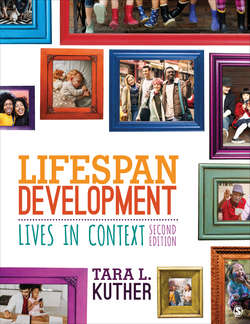Читать книгу Lifespan Development - Tara L. Kuther - Страница 393
На сайте Литреса книга снята с продажи.
Preconventional Reasoning
ОглавлениеLawrence Kohlberg (1969, 1976) investigated moral development by posing hypothetical dilemmas about justice, fairness, and rights that place obedience to authority and law in conflict with helping someone. For example, is stealing ever permissibl—even in order to help someone? Individuals’ responses change with development; moral reasoning progresses through a universal order of stages representing qualitative changes in conceptions of justice. Young children who display cognitive reasoning at the preoperational stage are at the lowest level of Kohlberg’s scheme: preconventional reasoning. Similar to Piaget, Kohlberg argued that young children’s behavior is governed by self-interest, avoiding punishment and gaining rewards. “Good” or moral behavior is a response to external pressure. Young children have not internalized societal norms, and their behavior is motivated by desires rather than internalized principles. We will examine Kohlberg’s perspective in greater detail when we discuss later childhood. Similar to cognitive development, children are active in constructing their own moral understanding through social experiences with adults and peers (Smetana, 1995; Smetana & Braeges, 1990).
